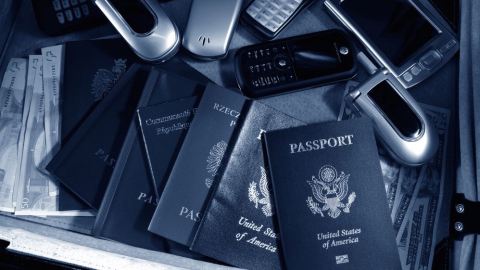To Travel Like a CIA Agent, Keep Your Story Simple

To avoid increased scrutiny at airports, the CIA recommends its covert operatives have simple and plausible responses to the two questions most frequently asked at airport screenings: Why are you here? Where are you staying?
The advice was given in an internal CIA document, recently released by WikiLeaks, that profiled the security methods of world airports most frequented by secret agents. Specifically, techniques were given for passing “secondary screenings” when a traveller’s explanation of their journey and personal effects are examined in detail.
Appearing calm is the best way to move through secondary screenings without suffering a lengthy interrogation from security officials. At Budapest’s Ferihegy Airport, for example, security officers use closed circuit television and one-way mirrors to monitor passengers for signs of nervousness.
“The Bahrain National Security Agency (BNSA) deploys undercover officers in the arrivals lounge of Bahrain Airport to actively look for travelers who appear to be nervous.”
Secondary screenings are particularly good at blowing an agent’s cover thanks to social media. Officials will check LinkedIn profiles and other social media to make sure someone’s identity is consistent with their story. The absence of a Twitter account for some professions may arouse suspicion.
But the released documents advise that “smart phones, iPods, and MP3 players, can pose a vulnerability to alias travel because of their requirement for subscriptions. If border control officials can establish a link between the device and the traveler’s true name,this could present a difficulty for someone traveling in alias.”
The TSA recommends on their site that you ‘dress the part’ when going through airport security. This requires being careful with body peircings, having your shoes ready, and removing other jewelry. Things go much faster when someone is prepared in the security line. If you are prepared, the line at security will go a lot faster and easier for everyone.
In her Big Think interview, Nadine Strossen, former president of the American Civil Liberties Union, takes up the issue of secrecy in government. At a time when many are critical of executive overreach, Strossen encourages more scrutiny of the Congress:
Read more at TSA.Gov
Read more at the Economist
Photo credit: Shutterstock





